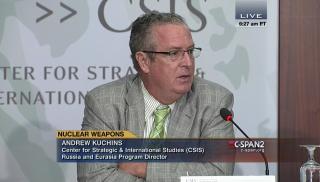(Point & Counterpoint) Through all the gloom of Russia’s stagnating economy, one bright spot has been the prudent macroeconomic policy coming from the Central Bank. Under the leadership of Elvira Nabiullina, Central Bank policymakers have helped navigate the country through the treacherous waters of international sanctions, volatile oil prices, and downward pressure on the ruble. Perhaps, more importantly, they have overseen a widespread cleanup of the country’s fraught banking sector. Hundreds of Russian suspect private banks have had their licenses revoked, while regulators have provided massive bailouts to at-risk financial institutions such as Otkrytie and Binbank.
Nonetheless, a dark cloud hangs over this positive news. As the clean-up winds down, state-owned banks now control over two-thirds of the total assets in the sector. What is more, many of these leading state-owned banks are rapidly expanding their presence in other dynamic industries such as IT and retail, indirectly enlarging the Russian government’s footprint within the economy. This piece explores the many political consequences of the consolidation. Concentrating banking resources in the hands of the state provides a sturdy safeguard against political and financial destabilization. These banks can strategically step up their lending activity in the run-up to competitive elections as well as facilitate tighter control over political financing. The creeping nationalization of the banking sector can have large downstream effects on the ability of both companies and political parties to compete in Russia.












